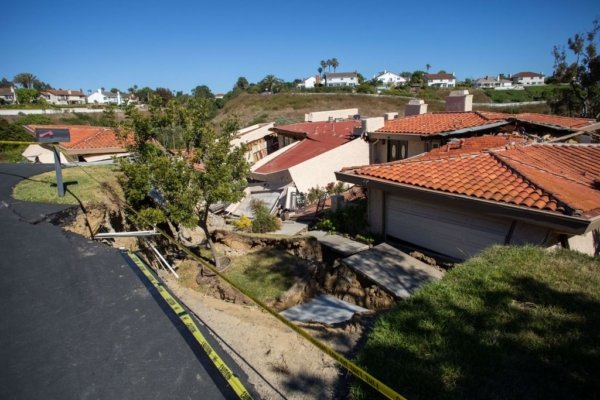In the past few months, residents in different regions of California have personally experienced or witnessed a series of natural disasters, including landslides, land movements, earthquakes, wildfires, and more, some of which directly destroyed a large number of homes. In addition to seeking help from insurance companies to minimize losses, homeowners in disaster areas can also apply for some county government programs to reduce property taxes.
For example, in Los Angeles County, the County Assessor’s Office responsible for property taxes has established the “Misfortune Calamity Tax Relief” (MC) program and the “Decline in Value” program to assist homeowners.
Property taxes, also known as property taxes, paid by California homeowners each year are based on the assessed value of the property. If the assessed value decreases, the property tax paid by the homeowner will also decrease. The MC program reduces the homeowner’s tax burden by reassessing and lowering the property value.
Los Angeles County Assessor Jeffrey Prang explained that if homeowners in a certain area are unfortunate enough to suffer severe natural disasters (including wildfires, floods, earthquakes, or even civil unrest), they can immediately apply for the MC program. Once approved, homeowners can pay lower property taxes until the house is repaired or rebuilt.
To apply for the MC program, homeowners need to meet some conditions: the disaster-related losses must exceed $10,000; and they must submit an application for “Reassessment of Property Damaged or Destroyed by Misfortune or Calamity” within 12 months of the loss.
Property values fluctuate, leading to annual changes in property tax amounts, which is considered normal. However, according to California’s Proposition 13, the annual increase in the assessed value of California homes cannot exceed 2%.
If there have been no changes in ownership but the increase is too high, or the homeowner disagrees with the value assessed by the county assessor’s office, they can raise objections, negotiate, or appeal the assessment.
On the other hand, if the property value has not increased but decreased due to certain factors, homeowners can proactively submit an application for “Decline in Value” to the county assessor’s office, requesting a reassessment to avoid paying excess property taxes.
The application period for “Decline in Value” this year is from July 2nd to November 30th. Homeowners can receive a property tax reduction by proving the decline in property value, including providing evidence of the current value of the house, the initial purchase price, and more.
California also has a commonly overlooked property tax relief assistance known as the “Homeowners’ Exemption” (HOX) program. In Los Angeles County, nearly one-third of property owners have not applied for this benefit, leaving $30 million in unclaimed annual savings, meaning approximately 435,000 families have missed out on this tax-saving opportunity.
The “Homeowners’ Exemption” program stipulates that if a property is the homeowner’s primary residence before January 1st, the assessed value of the property will automatically be reduced by $7,000, saving the homeowner $70 in property taxes annually. Homeowners only need to submit one application to automatically enjoy the exemption each year until there is a change in ownership. The exemption amount will be reflected directly on the homeowner’s property tax bill.
Since 1974, California has been fully implementing the “Homeowners’ Exemption” program statewide, with a deadline for applying for and receiving full exemption set for February 15th. ◇

